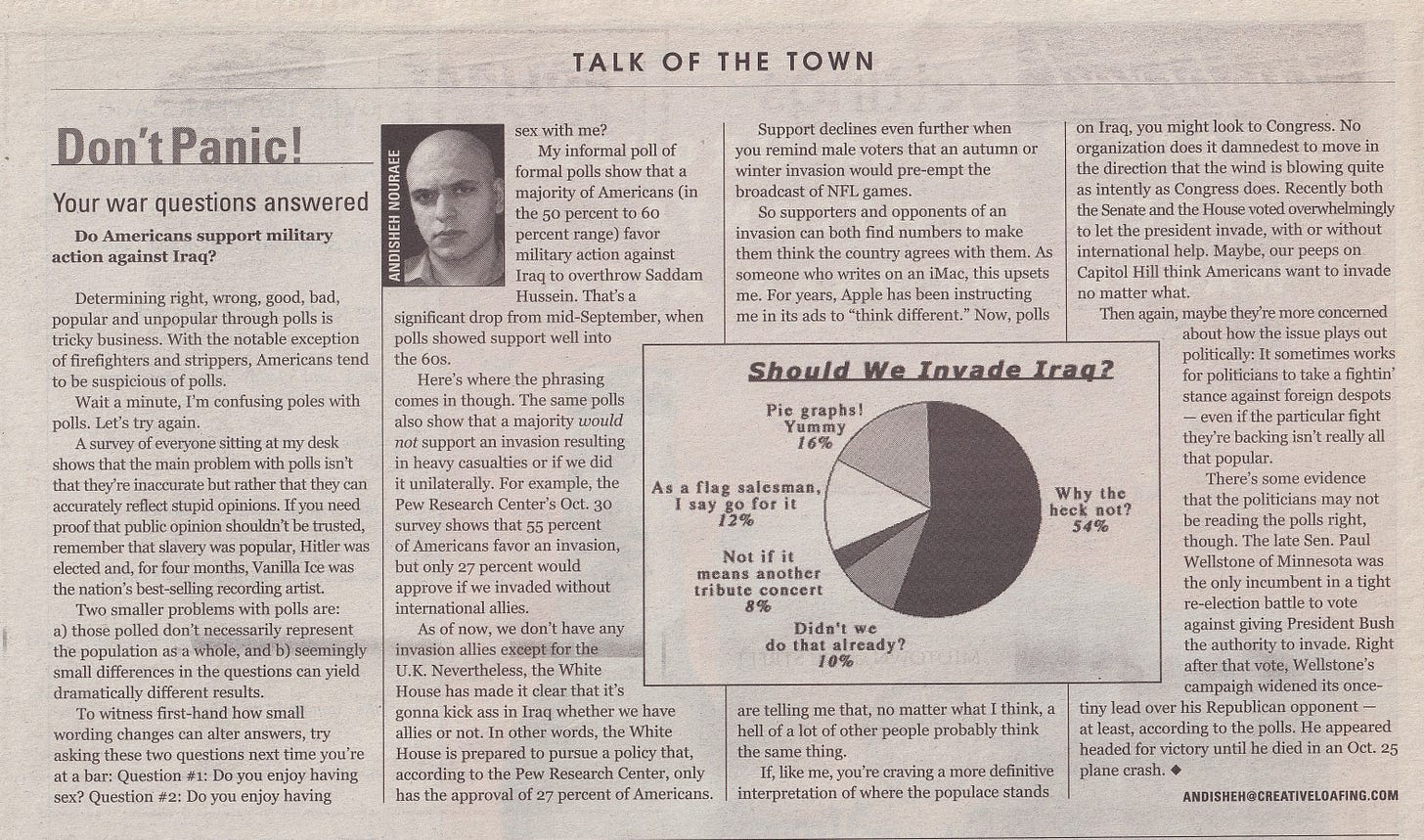The U.S. just got WNBA player Brittney Griner out of a Russian prison by trading imprisoned (in the U.S.) international arms dealer Viktor Bout. Bout has run guns for some of your favorite armies, including for the U.S. I wrote about him in 2007.
From August 2007:
Who is Victor Bout?
For several months, the White House and Pentagon have been telling the American public Iran is responsible for the deaths of hundreds of American troops in Iraq.
According to the U.S. government, media reports and two Iraq war veterans I’ve spoken to, militants in Iraq frequently attack American vehicles with Iranian-made explosives specially formed to penetrate armor.
Asked earlier this year whether he thought the Iranian government was responsible for sending the weapons to Iraq, President Bush offered this sarcastic reply: “What’s worse? That the government knew — or that the government didn’t know?”
Aww, snap!
How will the Iranian Ministry of Snappy Comebacks ever top that?
Turns out it doesn’t need to.
Last month, the U.S. Government Accountability Office reported the Pentagon lost 30 percent of the weapons it sent to Iraq between 2004 and 2007.
That’s 80,000 pistols and 110,000 AK-47 rifles purchased for Iraq’s military and police services gone missing.
What happened to these weapons? If the Pentagon knows, it isn’t saying.
They may be sitting in a warehouse somewhere. They may be in crates with checkered table cloths on top being used as dinner tables.
Or they may be in the hands of Iraqi insurgents and militia fighters, the people sending American soldiers and Marines home on stretchers and in coffins.
And the worst part: The Pentagon should have known its methods of funneling resources into Iraq were so insecure that a major security breach, such as 190,000 guns going missing, was inevitable.
The military doesn’t have enough transport capacity to move people, arms, equipment, food and fuel around on its own. It relies on private shippers. Among them is a man named Victor Bout (pronounced boot), thought to be one of the world’s pre-eminent black-market weapons merchants.
Born in Tajikistan of Russian parents, Bout came to prominence in the late 1990s for arming brutal civil wars in Liberia, Sierra Leone and Angola — the wars that introduced the phrase “blood diamond” into our vocabularies. He reportedly owns a large fleet of cargo aircraft and has a reputation for being able to get large amounts of almost every weapon imaginable to the remotest of locations. The United Nations and Human Rights Watch have been complaining about him for nearly a decade. A guest on an Aug. 4, 2001, CNN program called him “a kingpin in the illegal small-arms trade.”
For a while in the 1990s, Bout armed the anti-Taliban forces of the Northern Alliance in Afghanistan. Then, in 1995, one of his planes was reportedly captured by Taliban forces.
What some people might have considered a problem, Bout’s organization considered an opportunity. Western intelligence agencies believe Bout used his group’s encounter with the Taliban to make an arms deal. He switched sides and reportedly sold some $50 million of weapons to the Taliban in the late 1990s and early 2000s. In other words, Bout was arming the people who sheltered the terrorists who executed 9/11.
After 9/11, the U.S. government went after Bout. The Treasury Department tried to shut him down by going after his money.
Apparently the Pentagon didn’t get the memo.
Pentagon contractors hired Bout’s planes to move equipment in and out of Baghdad. Among the cargo Bout’s planes were supposed to have shipped: guns for Iraqi military and police.
In other words, the Pentagon paid a well-known double-dealer who sold tanks and guns to the Taliban to fly weapons into Iraq — at the same time the Treasury Department was trying to shut him down.
How many of the missing 190,000 guns were shipped by Bout is unclear. What’s clear, however, is that the missing 190K is just the tip of an iceberg.
Washington Post reporter Douglas Farah and L.A. Times reporter Stephen Braun have just co-authored a book about Bout that claims the United States paid him to ship 200,000 AK-47s to Iraq from Bosnia in 1994. The GAO and Pentagon have no clue where those weapons are now.
Braun and Farah’s book is titled, appropriately, Merchant of Death.


